Accounts Payable (AP) is one of the most critical processes for maintaining financial health, liquidity, vendor relationships, and compliance. It allows organizations to purchase goods and services and import them without making any upfront payment.
The traditional accounts payable process relies significantly on human agents to receive the purchase order, cross-referencing, invoice processing, etc. With the increasing transaction volumes, manual AP workflows can lead to issues such as overdue, duplicate payments, human errors, inefficiencies, and increased costs. AI-powered intelligent automation can help financial institutions streamline their accounts payable process, improving efficiency and accuracy and reducing the risks due to human errors and fraudulent activities.
This blog explains how AI-powered automation can transform the accounts payable workflows.
1. Automate Invoice Processing
Traditionally, AP departments rely heavily on manual processes to manage invoices. This includes manual data entries, approvals, payment schedules, etc. With AI-powered automation or intelligent automation, financial institutions can enhance this process. Here’s how:
- Banks and financial institutions can use AI systems combined with Optical Character Recognition (OCR) and Machine Learning (ML) algorithms to scan invoices and extract relevant data such as vendor details, line items, amounts, and due dates. It can also automatically enter this scanned and extracted data into an ERP system, eliminating the need for manual data entry and reducing the chances or likelihood of errors.
- Another most time-consuming task in AP is matching invoices with purchase orders and receipts. With AI-powered automation, AI can match these documents automatically. With machine learning capabilities, it can learn patterns and identify related information – gradually becoming better at identifying discrepancies and handling exceptions.
- Once invoices are processed, the AI-powered automation system can trigger approval workflows based on predefined rules. For instance, it can auto-approve invoices that are within a predefined threshold and send others for manual sign-offs, enhancing the process efficiency.
2. Improve Payment Processing and Cash Flow Management
AI-powered automation can help optimize payments and improve cash flow management – another key area in financial services.
- With an AI-powered automation system, financial institutions can analyze historical payment data and predict the best timing for payments based on factors such as cash flow, vendor terms, and discount opportunities. For instance, it can recommend early payments when discounts are available or push out payments when cash reserves are low—making it easier and more convenient to take advantage of cost-saving opportunities while maintaining a healthy cash flow.
- AI-based automation systems can schedule and execute or initiate payments for approved invoices without manual intervention. Such intelligent automation enables timely payments, reduces delays, and protects financial institutions from penalties or late fees.
- With AI-powered automation tools, financial institutions can quickly analyze past transactions to negotiate better payment terms based on historical performance with vendors. For instance, identifying vendors that consistently receive early payments and then using this data to secure more favorable terms in future negotiations.
3. Reduce Errors and Enhance Compliance
Compliance and error reduction are some of the most critical concerns in financial institutions. AI-powered automation can help improve accuracy and meet compliance requirements. Here’s how:
- AI systems can continuously analyze and monitor transactions to detect anomalies and errors, such as duplicate invoices. It can detect missing line items or incorrect amounts and flag such discrepancies before the payment is processed.
- AI-powered automation systems trained using historical and newly generated data can ensure financial transactions meet regulatory and internal audit requirements. For instance, the AI system can flag illegal transactions and halt the payment, notifying the stakeholders to take appropriate actions.
- AI-based automation systems can intelligently log every action in the AP process. They can create a detailed and searchable audit trail to enable financial institutions to track every transaction back to their source/origins. This capability helps ensure the organization is always audit-ready and reduces the time spent on manual reconciliations and reporting. For instance, in case of an audit, AI systems can provide transaction logs with details of personnel who approved and processed an invoice.
4. Strengthens Fraud Prevention
Fraud prevention is a top priority of financial institutions. With an AI-based automation system, financial institutions can safeguard themselves against fraudulent activities in the AP process.
- AI systems can continuously learn from historical data and newly generated data and identify a baseline of normal transaction behavior. This capability enables the system to detect anomalies or suspicious transactions indicative of fraudulent activity. Some examples include unusual vendor requests or abnormally large payments.
- AI systems can generate real-time alerts when unusual activity is detected. For instance, if a vendor submits an invoice outside their usual pattern or if there are unverified changes in bank details, the system will automatically flag the transaction and route the invoice for manual scrutiny.
- With an AI-powered automation system, financial institutions can precisely verify vendor information by cross-referencing vendor data with external databases before processing payments. This helps ensure only legitimate invoices are processed, thereby significantly reducing the risk of phishing attacks and vendor fraud.
Conclusion
AI-powered automation can enable significant operational upgrades in the accounts payable process. It has become a vital tool for financial institutions and other organizations, as it helps them improve efficiency, enhance accuracy, reduce fraud, and scale seamlessly with organizational growth.
To learn more about how AI-based automation can improve your AP workflow, contact us at info@anaptyss.com.



